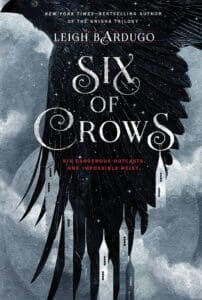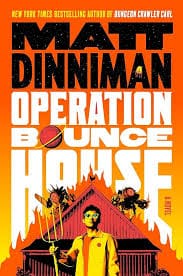
While every writer’s exact reasons for writing, and their journey, is unique in many ways, I’ve got an idea that there are two things we have in common that fuel our motivation. These are the reasons we keep writing without reward, even where no immediate audience or revenue stream is apparent, and why we keep yearning for opportunities to be noticed, and keep submitting and submitting and submitting. Through understanding this, I feel we can go a distance towards explaining how we interact with our own writing, readers, the submissions process and more. And on the flipside I guess it can help give readers some insight into the Groundhog Day-esque hellscape of a career writer’s mind.
The Need to Write
Firstly, and most obviously, I think most writers are driven by a primal need to realise a story. We all have something inside us that requires expression, which can manifest in myriad ways. All forms of art tap into this need, as would a drive to do well in business or sport, or a desire to bake the best bread. We look for a way to externalise what we feel inside.
Specifically relating to stories, we live these ideas in our head that get power through expression. When we submit a character’s journey to paper, it takes it from our imagined what-if to a tangible reality (an “Oh, that-if”, if you will). Only once we start writing a story can we properly discover (a) what it is about that story which affects us most, and in what ways, and (b) how that story can be improved and ultimately perfected. By crafting the story, editing it and, if we take it this far, publishing it, we ratify everything about that story which was important to us. We have taken our feelings and created something that can be touched, enjoyed, studied, and stored for posterity.
None of this necessarily leads to publication or even a need to be read. This could be an entirely private process. But the bottom line remains that writing, at its core, satisfies a need to express.
The Big Old Barrel of Hope
The other thing that I believe grips most writers, however, is the hope that our writing is important. That in creating something from our thoughts, we are adding to the world. Which, of course, we all are, even those who write in total privacy. Almost everything I write comes with a sense of hope attached, however foolish, and that fuels me. It’s a little spark not akin to how you feel imagining winning the lottery, and it takes form in mad musings like this:
- This story will change the way people think/make people laugh or cry/make people stay up all night/inspire someone to do something.
- This manuscript will be the one that agents/magazines/reviewers love.
- This agent/magazine/publisher is so perfect for my story they’ll surely buy it.
- When this reviewer says they like my book, everyone will buy it.
- If this superstar author reads my book and likes it, the whole world will read it.
- If I win this competition, I’ll be noticed by agents/authors/film companies etc.
Little by little, with each piece of writing and each step that doesn’t quite bring ultimate fame and fortune, you run through a gamut of realising these things might not happen. Agents like your book but don’t love it. You get good reviews but not sales. You get good sales but no one buys the second book. You win a competition and discover in your new-found fame that you hate being in the public eye. And eventually you’re left clutching the cold withered hand of Mother Reality as she whispers “Writing careers aren’t that easy.”
The thing is, to keep writing takes discipline and persistence and, perhaps most importantly, an ability to believe all those things again. This wasn’t the manuscript, the next one might be. No? Maybe the next one will do. Maybe the next competition. You have to keep believing, again and again and again.
You have to enjoy believing it, because you’re giving yourself fuel to keep creating art. And that sparkling success may never happen, but shoot for the moon and you’ll find other rewards (miss and land among the stars, as they say). A friend says your book good them back into reading. Someone feels inspired to create artwork from your books. A random stranger simply says “I really enjoyed this.” These smallest of these things can lift you up in a powerful way, because you realise that your need to write (to express) connects with someone else, and that’s worth everything.
The recognition that any piece of writing could, at any time, make a difference, isn’t just a matter of setting targets, it’s uplifting in itself. It’s part of why I write, anyway. Not just to satisfy my need to write, but to keep that fantasy alive. Because I can write about monsters and fairies and the nefarious schemes of the grugulochs all day long, but the biggest and most entertaining aspect of it all is that writing has a value we can’t predict, or quantify, and at any moment you might discover exactly what that is.
And hey, it can loop around, when you sit back and realise you just enjoyed the hell out of the adventure of it all and, whoah, connected with yourself.

About the Author
Phil Williams is an author of contemporary fantasy and dystopian fiction, including the Ordshaw urban fantasy thrillers and the post-apocalyptic Estalia series. He also writes reference books to help foreign learners master the nuances of English, two of which are regular best-sellers on Kindle. Phil lives with his wife by the coast in Sussex, UK, and spends a great deal of time walking his impossibly fluffy dog, Herbert.
Website: https://phil-williams.co.uk
Twitter: https://twitter.com/fantasticphil
Goodreads: https://www.goodreads.com/author/show/6579274.Phil_Williams




Leave a Reply